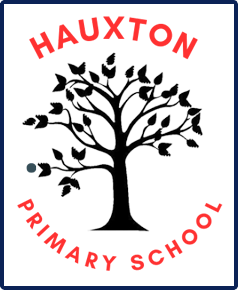Special Educational Needs and Disability (SEND) Information Report
Hauxton Primary School is an inclusive school and may offer the following range of provision to support children with SEND, where the school has identified a need and staffing levels allow. The progress of every child in our school is assessed, monitored and discuss in termly pupil progress meetings. If any child is not making the progress we would expect, this is discussed with parents and support is put into place.
Below is an overview of the needs and interventions we currently have available in our school.
For detailed information of how we identify children with SEND and the procedures to inform parents, please see our SEND Policy on the school website, or contact our SENCo,
The needs that we currently provide for:
Children with diagnosis of Autism Spectrum Condition
Children with specific learning difficulties in Reading, Writing or Maths
Children with social, emotional and mental health difficulties (SEMH)
Children with Speech and/or Language difficulties
Interventions:
All the interventions at our school are delivered by staff who have had training in running these groups.
The provision in these groups is overseen by our SENCo.
The effectiveness of every intervention run in school is monitored by the use of pre-intervention baseline assessments, which are repeated at least termly to monitor the impact the support is having on the children. Interventions are then modified if necessary in light of these assessments.
A whole school provision map is updated termly.
Targeted Interventions for specific learning difficulties in Reading, Writing or Maths
First Class @ Number: A daily maths group focusing on the foundation understanding and skills in number and early calculation
Rapid Phonics: A daily phonics group aimed at increasing phonetic understanding or plugging gaps in phonic teaching
Targeted Phonic interventions: Our phonics programme includes extra teaching modules for children that require extra practice within a phase
Targeted reading: Extra reading practise 1:1 with an adult in school
Dictation, handwriting or sentence-level group work, usually led by the class teacher
Access to a supportive environment: IT facilities/equipment/resources (inc. preparation)
Use of appropriate visual timetables and visual communication tools
Pre-teaching of strategies and vocabulary
Access to a laptop/ computer/i-Pad
Specialist equipment to access the curriculum e.g. adapted resources, A dyslexia friendly environment
Access to physical resources that will aid understanding e.g. dienes, numicon, vocabulary mats
Strategies/programmes to support speech and language
Interventions from Speech and Language Therapy Service (if the child meets the threshold level required for their
support)
Implementation of speech and language programmes by TAs with specialist training (Elklan)
Support from a member of staff trained in speech and language strategies
Talking partners/ Spirals/ Talking Maths programmes
Access to strategies/programmes to support Occupational Therapy/Physiotherapy needs (if a child meets the threshold level required for their support)
Interventions from an Occupational Therapist/Physiotherapist
Delivery of a planned Occupational Therapy/Physiotherapy programme by a trained TA
Strategies to reduce anxiety/promote emotional wellbeing (including communication with parents)
Individualised programmes of support implemented consistently by all staff
Referral to appropriate outside agencies eg YOUnited (an umbrella agency that helps children with mild to moderate mental health needs)
School Nursing Service
Lego Club (small group work using Lego to develop social skills, language and team work)
Social stories
Mrs Jayne Lay
SENCo
- jsnelling@hauxton.cambs.sch.uk
Cambridgeshire local offer
All local authorities working with their partners must publish information about how children and young people 0 - 25 who have special educational needs and/or disabilities (SEND) are supported in their area. This is known as the local offer. The local offer includes information on:
- universal services that are available to everyone, such as schools, GPs, (universal services)
- targeted support and services for children and young people who may need some additional, short term support
- specialist services for children and young people who have complex needs and need longer term specialised support
- Click on the link below to find out more:
